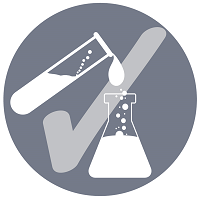Formulation and Delivery
Inhaled Vaccines: Advancing Respiratory Infection Prevention and Overcoming Current Limitations
Wednesday, October 23, 2024
9:30 AM - 10:00 AM MT
Location: 155 B

Pavan Muttil, PhD
Associate Professor and Chair
College of Pharmacy, University of New Mexico
Albuquerque, New Mexico
Speaker(s)
Currently licensed injectable vaccines typically induce only moderate immunity, resulting in less effective protection against respiratory viruses. Inhalable vaccines, on the other hand, have the potential to elicit IgA-mediated immune responses in the respiratory tract, which can neutralize respiratory viruses in the lungs.
In this presentation, the speaker will first discuss the challenges posed by current injectable vaccines in providing sterilizing immunity against respiratory infections. These vaccines often fall short in generating robust and long-lasting immune responses. Additionally, the speaker will address the logistical challenges related to the storage and distribution of injectable vaccines, particularly the cold-chain requirements that can be burdensome and costly.
The presentation will then shift focus to the advantages of inhaled vaccine delivery as a promising alternative. The speaker will highlight how inhaled delivery can address the aforementioned challenges by directly targeting the respiratory tract, where many infections initiate. Through case studies, the speaker will illustrate the rationale for choosing inhaled delivery, emphasizing formulation design considerations, thermostability enhancements, characterization techniques, and preclinical efficacy studies.
A significant case study to be discussed will revolve around the development of an inhalable and thermostable tuberculosis vaccine. The presentation will delve into the formulation strategies employed, the assessment of thermostability to withstand storage and transportation challenges, and the promising results from preclinical efficacy studies.
Overall, this presentation aims to showcase the potential of inhaled vaccine delivery in overcoming current limitations and advancing the field of respiratory infection prevention through enhanced immune responses and improved vaccine logistics.
In this presentation, the speaker will first discuss the challenges posed by current injectable vaccines in providing sterilizing immunity against respiratory infections. These vaccines often fall short in generating robust and long-lasting immune responses. Additionally, the speaker will address the logistical challenges related to the storage and distribution of injectable vaccines, particularly the cold-chain requirements that can be burdensome and costly.
The presentation will then shift focus to the advantages of inhaled vaccine delivery as a promising alternative. The speaker will highlight how inhaled delivery can address the aforementioned challenges by directly targeting the respiratory tract, where many infections initiate. Through case studies, the speaker will illustrate the rationale for choosing inhaled delivery, emphasizing formulation design considerations, thermostability enhancements, characterization techniques, and preclinical efficacy studies.
A significant case study to be discussed will revolve around the development of an inhalable and thermostable tuberculosis vaccine. The presentation will delve into the formulation strategies employed, the assessment of thermostability to withstand storage and transportation challenges, and the promising results from preclinical efficacy studies.
Overall, this presentation aims to showcase the potential of inhaled vaccine delivery in overcoming current limitations and advancing the field of respiratory infection prevention through enhanced immune responses and improved vaccine logistics.
Learning Objectives:
- Upon completion, participant will be able to explain the benefits of inhaled vaccines and their potential to generate protective immunity
- Upon completion, participant will be able to list the formulation considerations and approaches when developing vaccines for inhaled delivery
- Upon completion, participant will be able to list the various characterization techniques to evaluate the vaccine formulation including formulation characteristics and preclinical studies

